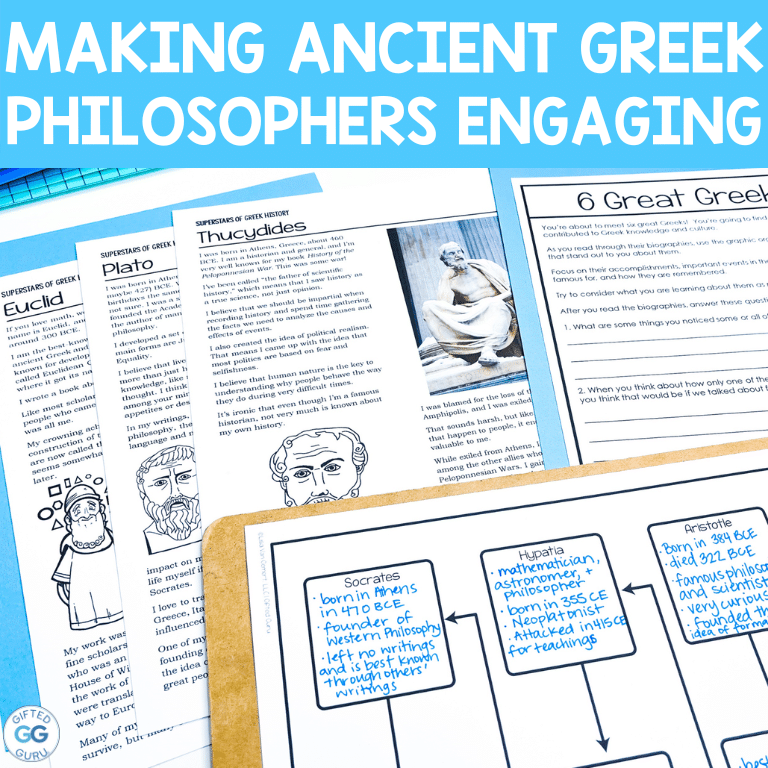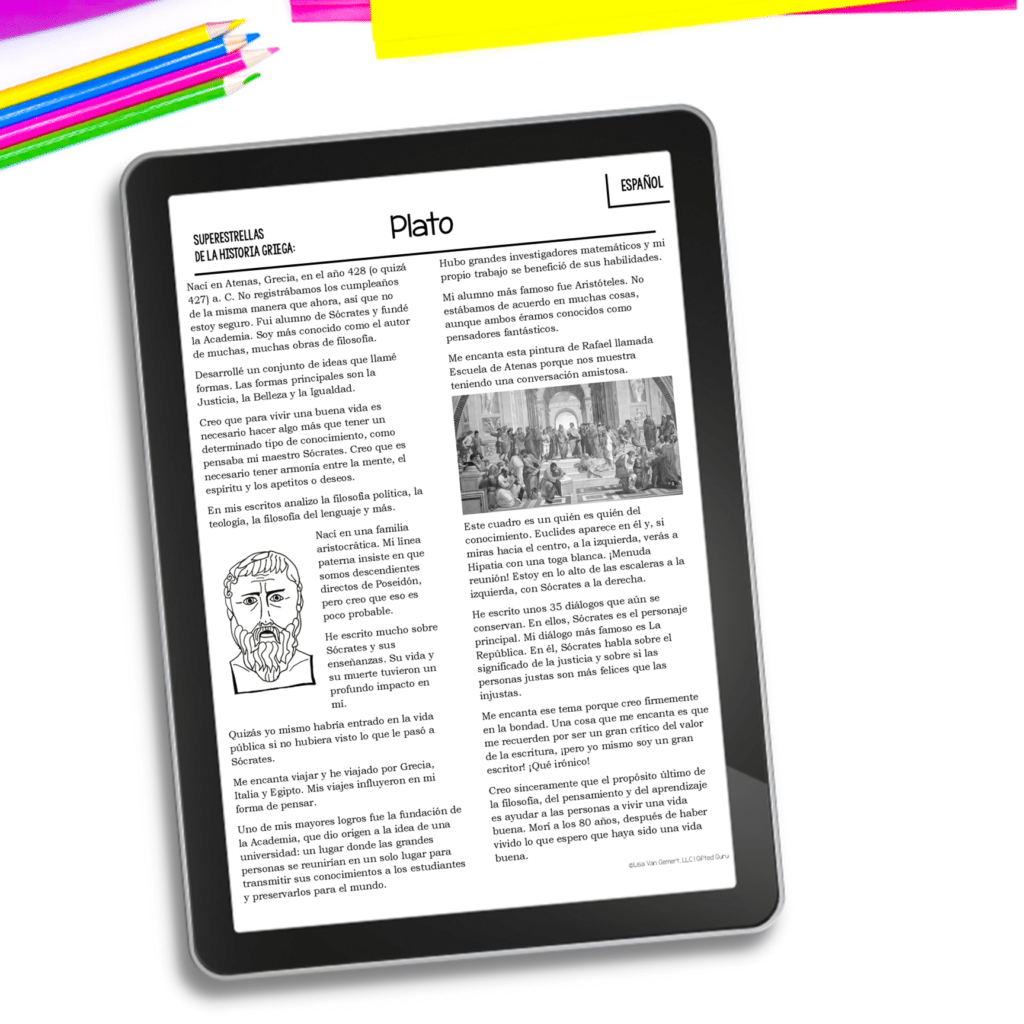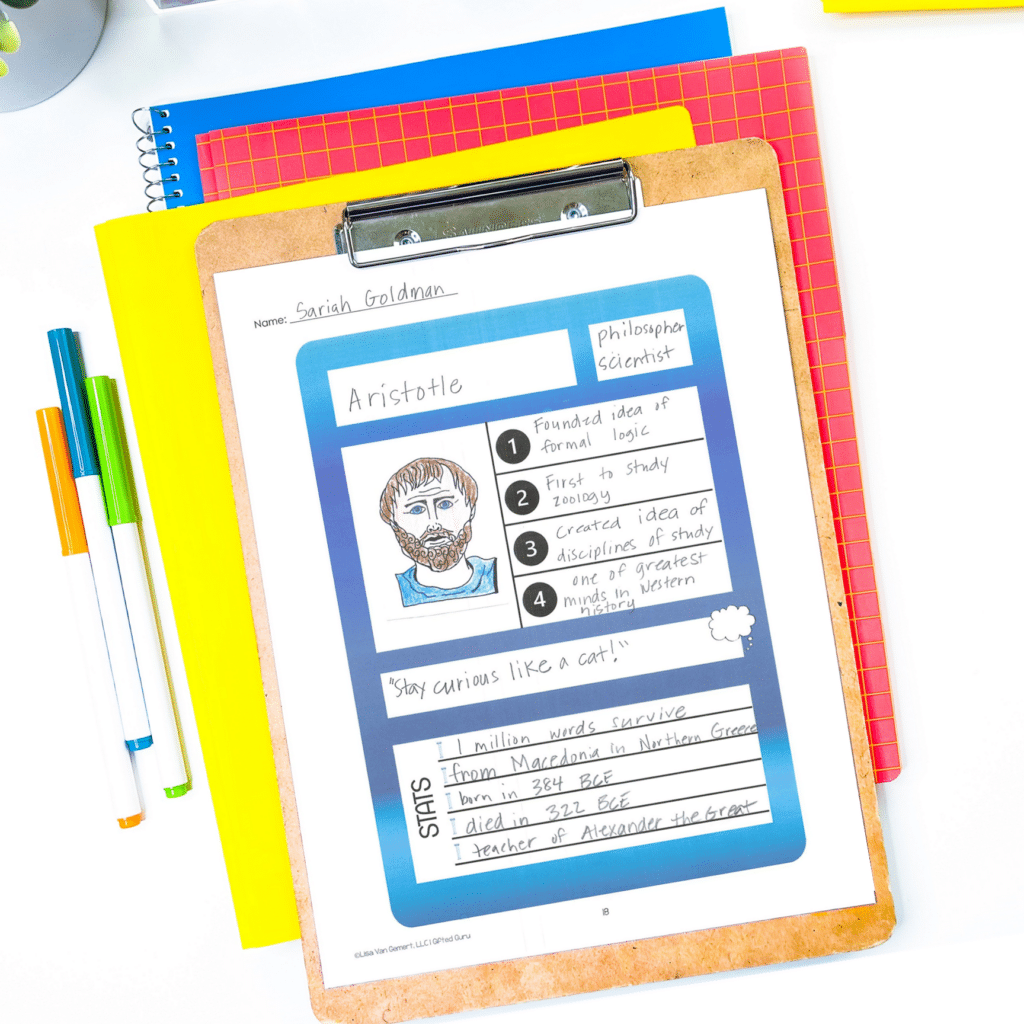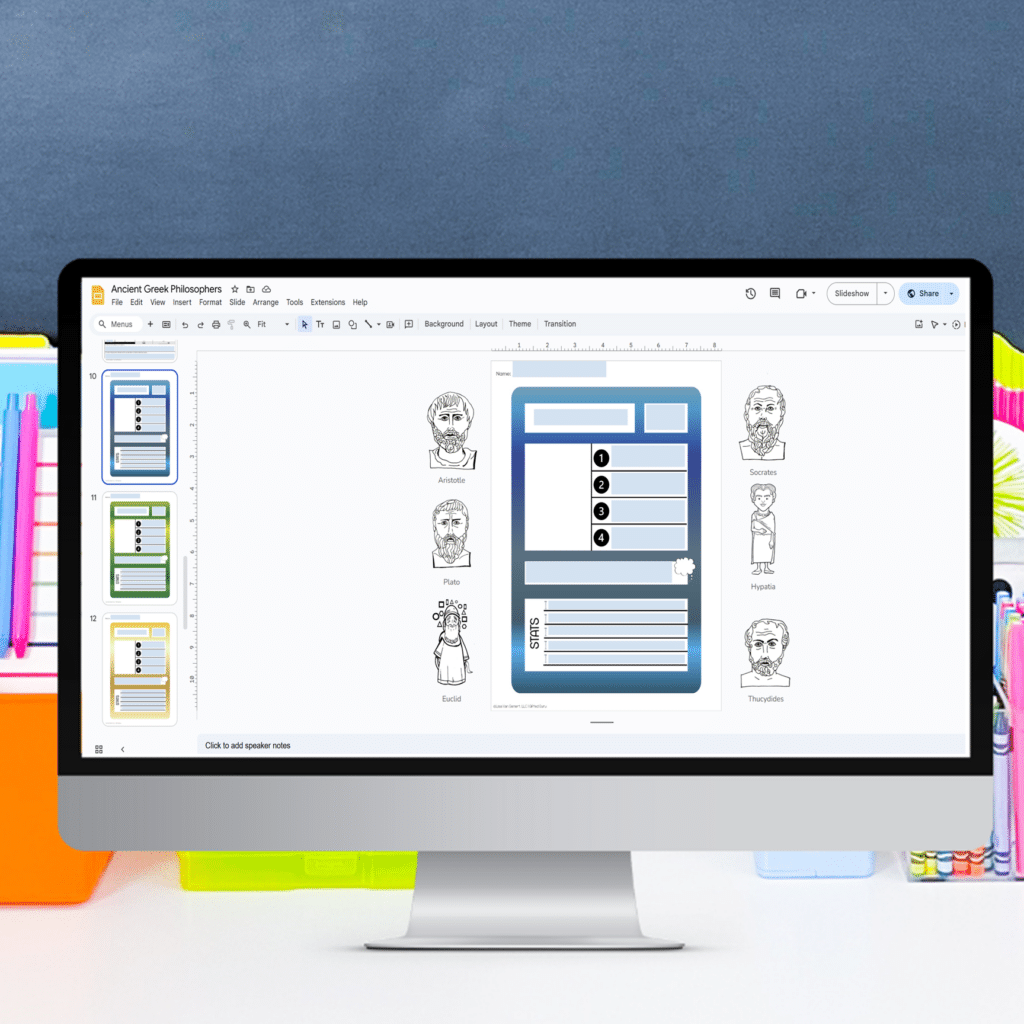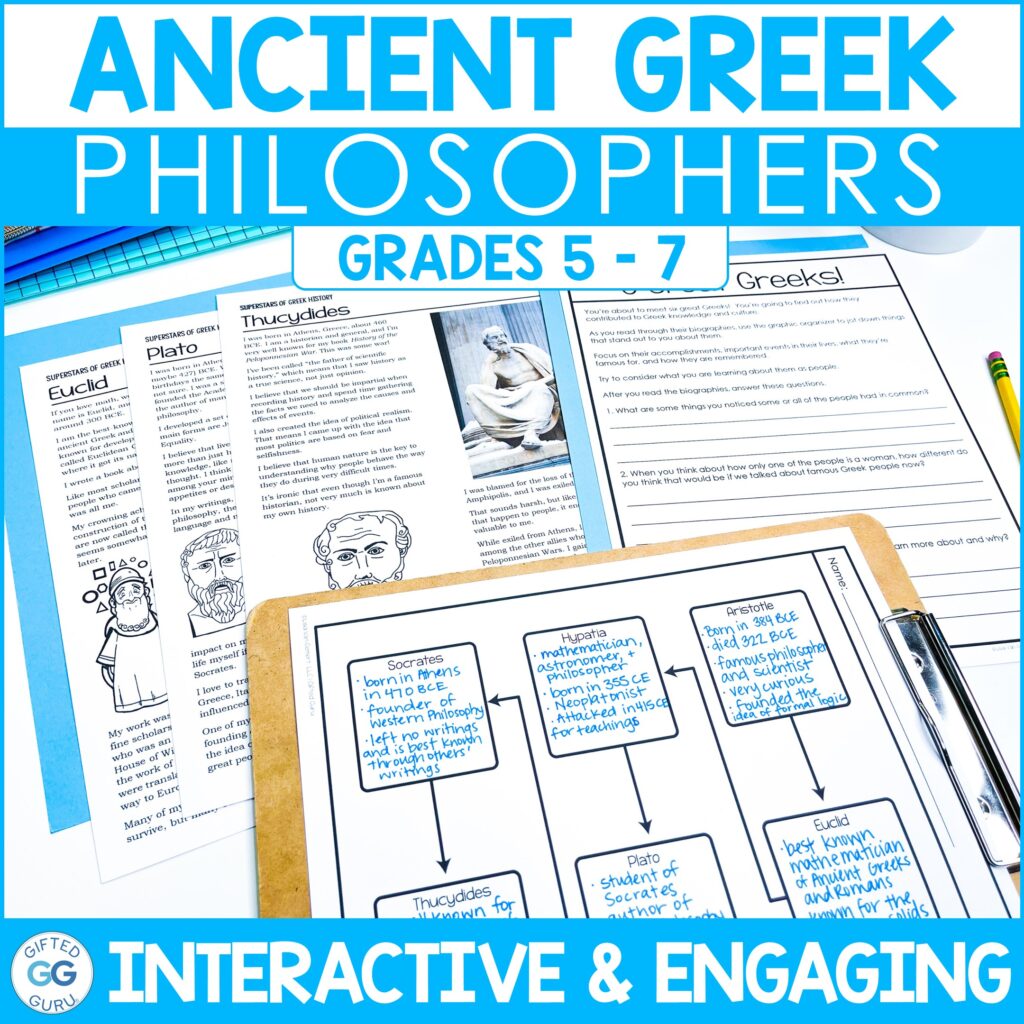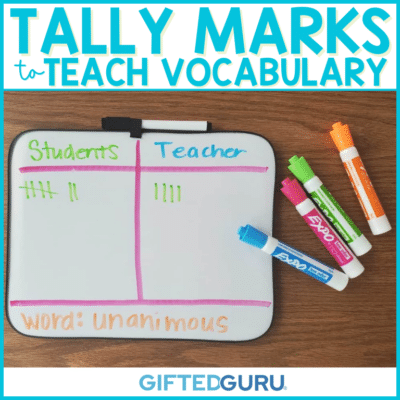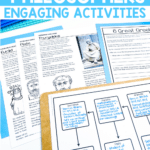Teaching Greek philosophers to 5th and 6th graders can feel like a challenge. How do you take the abstract ideas of Socrates, Plato, or Hypatia and make them meaningful for students who might still struggle to remember what they had for lunch?
If you’ve ever seen eyes glaze over at the mention of studying Ancient Greece, you’re not alone. Traditional textbook readings and lectures often don’t work for our students. They need something more interactive, something that brings these historical figures to life in a way that makes sense to them.
Even though *we* know how amazingly interesting they are, we can struggle to get our students to buy in.
That’s why I designed a low-prep, high-impact resource that makes Greek philosophers not just understandable, but exciting! Using creative activities based on Williams’ Model of Creativity, you can transform your classroom into a place where students actively engage with history rather than passively absorb it.
Let’s dive into three easy ways to make Ancient Greek philosophers fun and memorable in your classroom.
Start with Short, Engaging Biographies
📖 The Challenge:
Many students struggle to connect with historical figures because the reading material is dense, overly formal, or too long. I’m looking at you, textbooks. (I love textbooks for what they can do, but they can be overwhelming, especially to younger readers.)
✨ The Solution:
Instead of overwhelming students with pages of textbook information, introduce them to one-page, first-person biographies that read like a conversation rather than a history lecture.
🔹 How to Use This in Your Classroom:
- Provide students with short biographies of Socrates, Plato, Aristotle, Hypatia, Euclid, and Thucydides.
- Use a graphic organizer where students jot down the philosopher’s key beliefs, major contributions, and an interesting fact.
👉 Why It Works: These biographies are written in an engaging tone with short paragraphs, making them perfect for all reading levels. Struggling readers? No problem! They’re approachable, visually engaging, and available in Spanish and Portuguese translations.
Make Learning Interactive with Trading Cards
🎴 The Challenge:
Memorizing facts about historical figures can feel dry and forgettable.
✨ The Solution:
Turn it into a game! Have students create trading cards for the philosophers they read about.
🔹 How to Implement:
- Each student picks two philosophers and creates a trading card for each.
- The front includes a hand-drawn or digital illustration of the philosopher.
- The back lists key details: time period, main ideas, famous works, and an interesting fact.
- Students can “trade” their cards with classmates to learn about other philosophers.
👉 Why It Works: This activity makes students synthesize information rather than just copy it down. Plus, it taps into the collectible card trend, making learning feel more like a fun game than an assignment.
🖍️ Low-Prep Tip: These can be done on paper or using a Google Slides template, so they work with or without technology.
Encourage Deep Thinking with a Philosopher Dinner Party
🍽️ The Challenge:
Memorizing facts is one thing—applying them is another. Many students struggle to see how historical figures might interact or debate ideas.
✨ The Solution:
Host a Philosopher Dinner Party where students create an imaginary conversation between three of the philosophers they studied.
🔹 How to Implement:
- Each student selects three philosophers.
- They imagine these philosophers meeting at a dinner party and write a conversation between them.
- Encourage students to consider:
- What topics would they discuss?
- Would they agree or disagree?
- How would they phrase their arguments?
👉 Why It Works: This activity builds higher-order thinking skills by asking students to apply what they learned in a creative and engaging way. It also supports the Williams’ Model of Creativity, fostering originality, elaboration, and imagination.
✏️ Low-Prep Tip: A simple printable template guides students through writing their conversations—no extra prep needed!
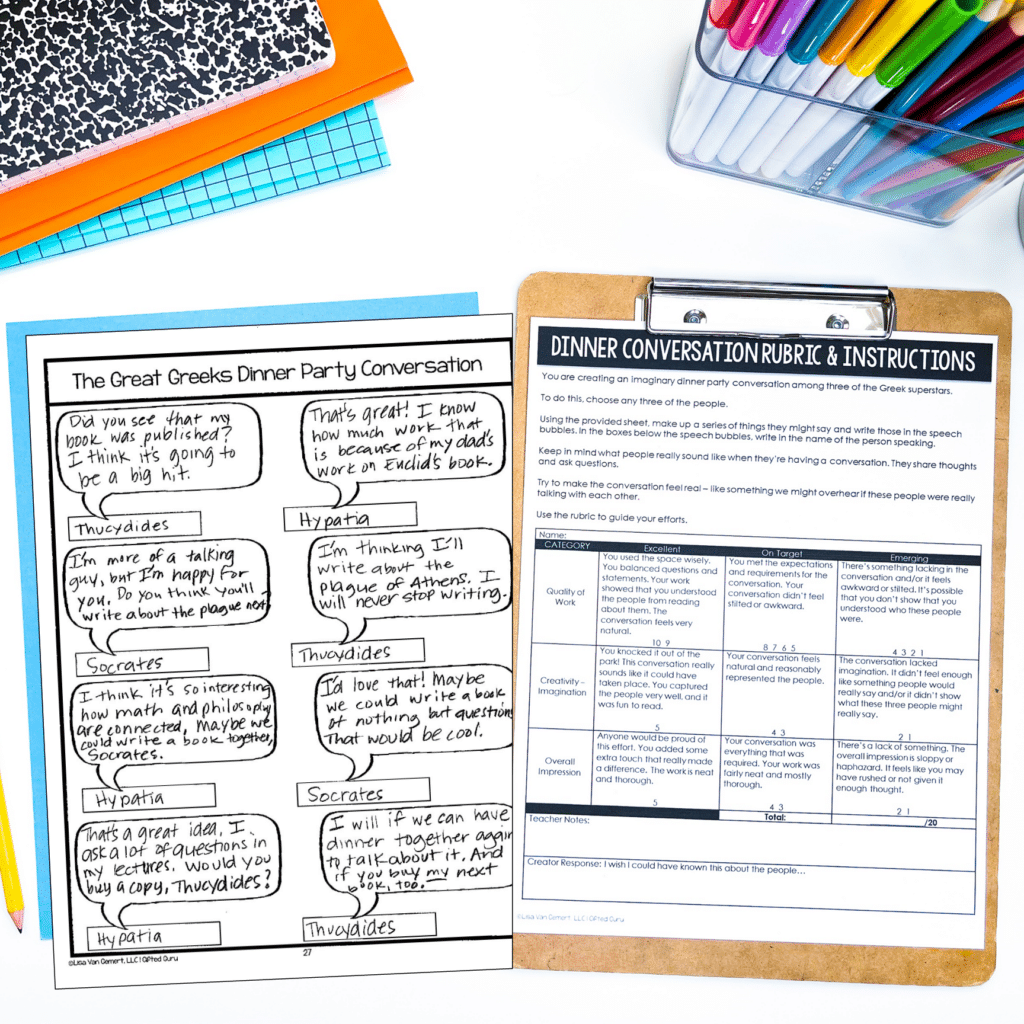
Why This Approach Works
✔️ It’s Low-Prep: Just print and go! Everything you need—biographies, trading card templates, conversation prompts, and rubrics—is included.
✔️ It Builds Creativity: These activities encourage deep thinking instead of rote memorization.
✔️ It’s Accessible: Designed for all learning levels, with translation options available.
Ready to Bring Ancient Greece to Life?
You don’t have to settle for dry textbook lessons when teaching Greek philosophers. With these interactive, creative activities, your students will be excited to learn about studying Ancient Greece—and they’ll actually remember what they learned!
📥 Download the ready-to-use resource here and make history come alive!
You can get the Ancient Greek Philosophers activities on TpT.
You can also get the Ancient Greek Philosopher resource directly from me.

